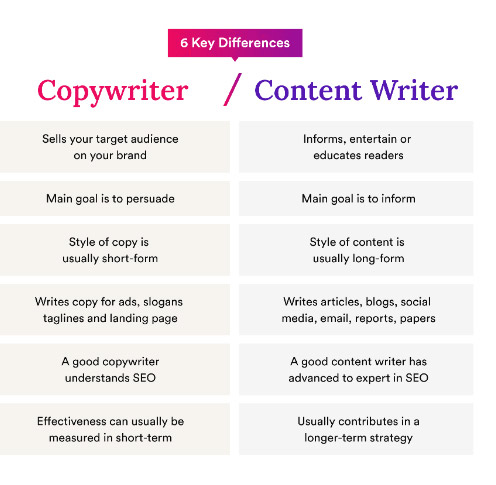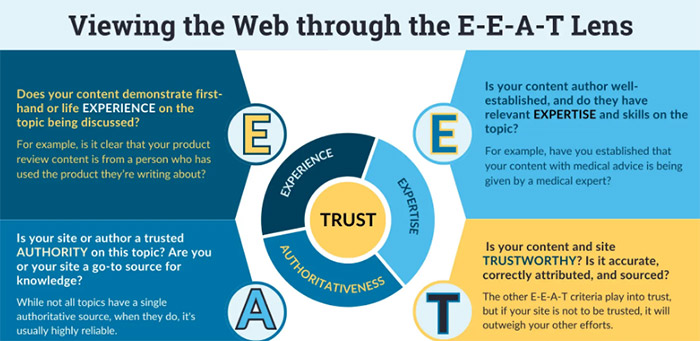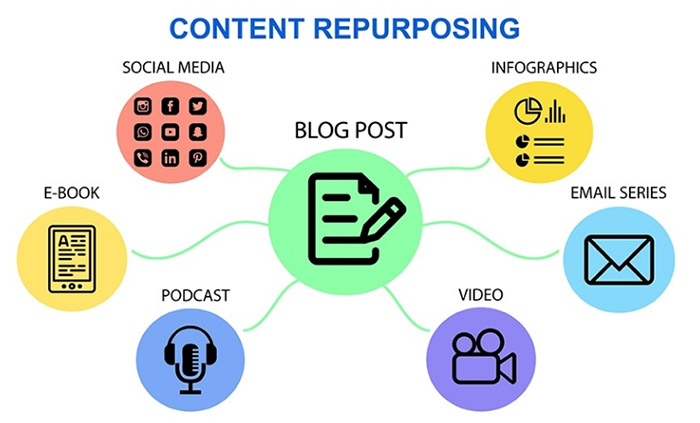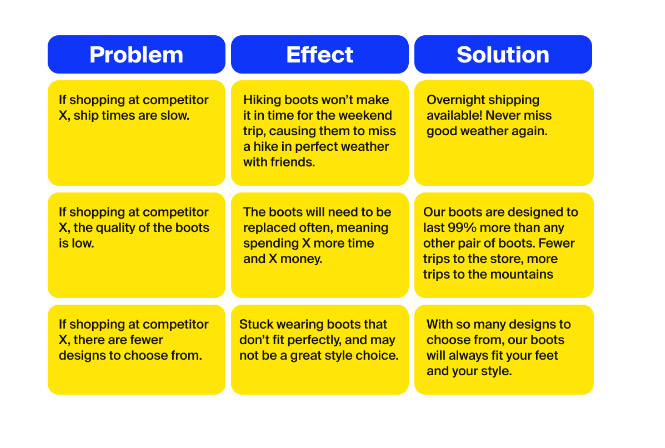There’s a common myth revolving around the world of content writing that businesses can either step on a copywriting staircase or a content writing staircase to reach their goals.
As a content writer who has written for several brands, I can confidently debunk this myth. While they’re both vastly different types of writing techniques, their ultimate objective is to increase conversion rates.
Hence, giving up one for another doesn’t seem reasonable, especially when both can do wonders in helping brands retain customers and boost sales. If you’re one of those people who had a favorite child out of the two, you’re surely missing out.
However, there’s no need to fret. A new year brings a new set of opportunities to elevate your business, and this article is just that.
Keep reading to understand the difference between content writing and copywriting and why it’s integral to utilize both for an all-rounded marketing strategy. So let’s get started!

Copywriting Vs Content Writing: Differences
While I can write paragraphs and paragraphs settling the debate of copywriting vs content writing, the truth is that they’re not eligible to be pitted against each other.
Imagine two farmers debating on whether a cow or a hen is the better animal to keep on a farm. A successful farmer, however, would find no basis for such a debate since both animals have different products to offer.
Where a cow can provide beef and milk, a hen can supply eggs and chicken. How, then, can they be weighed on the same scale? And why choose one when you can benefit from both?
To understand how you can benefit from both content writing and copywriting in 2024, let’s understand the difference between the two first.
i. Writing Objectives
The most prominent difference between copywriting and content writing is their objective.
- The primary objective of copywriting is to convince readers and convert them into customers. Copywriters employ techniques that give rise to a sense of urgency and activate emotions that prompt readers to take a specific action.
- The main intent behind content writing is to drive engagement and educate readers. Content writers use their skills to inform, inspire, build trust, and entertain their audience.

ii. Writing Style
There lies a significant difference between the writing style of the two formats:
- Copywriters focus on impactful content using powerful words, short sentences, commanding headlines, and compelling calls to action (CTAs). Through the use of persuasive language, they aim to keep their audience engaged and motivate them to take action at the end.
- Content writers write in a more detailed style. They use personal pronouns, easy-to-imagine examples, and anecdotes to craft engaging and informative content.
iii. Value of SEO
SEO plays a dual role in copywriting and content writing.
- For copywriters, SEO is a luxury good. While they can use SEO practices to ensure their content ranks, they can live without it as well since their content’s performance is gauged by its ability to convert.
- For content writers, SEO is a basic necessity. From keyword research to using appropriate heading tags and more, content writers have to integrate SEO tactics into their content to attract organic traffic for increased visibility on search engines.
They juggle different goals, such as high-quality content, engaging content, and SEO-optimized content, together when working on their pieces and are required to strike a perfect balance between these three elements for optimal performance.
iv. Project Scope
The work of a copywriter and a content writer falls under varying spectrums:
- Copywriters are mainly hired for individual campaigns or projects with a specific deadline. They work to create content pieces that are intertwined with each other, for instance, content that adjusts to each stage of the sales funnel, to achieve the desired objective.
- Content writers partner with brands for persistent content and publications, and are required to maintain the brand voice across all their copies consistently.
v. Mindset
Both content writers and copywriters acquire a distinct mindset when working on their respective projects:
- Brands look for a sales-oriented mindset in copywriters with experience in selling and marketing. They must be acquainted with the art of creating content that succeeds in persuading readers to take the targeted action.
- In content writers, brands look for professionals who can write informative content through storytelling and establish a connection with their readers. Content writers instill value in their content so that it’s relevant even in the future and focus on building trust.
How Can Content Writing Help Your Business?
Establish Authority and Trust

Ross Jeffries once said, “People will not accept that you are an authority on where they should go or what they should do unless they first accept that you are an authority or an expert on where they are at.
If you want people to accept that you are an authority on where they should go, you must first demonstrate that you understand where they are at.”
Content writing is the way to if you wish to establish yourself as an authority in your niche. By publishing high-quality and engaging content consistently, such as industry trends and solutions to search queries and challenges, brands can amplify their reputation, brand awareness, and credibility.
This is an excellent example of clout content that not only enables your brand to be recognized as an expert but also establishes a relationship of trust with your audience.
Improve SEO and Website Visibility
The best part about content writing is that it can be optimized for SEO. This way, you can invite organic traffic to your site and boost site visibility without spending extra bucks on paid advertising.
Generate Leads
When content writers create pieces that comprehensively answer the queries of customers or help them find what they are looking for they give birth to happy customers who are willing to sign up to your business’s email list.
They may even be encouraged to inquire further about your brand’s offerings, ultimately stepping closer and closer to making a purchase.
The key here is to be strategic with your content. Target customers who are at different stages of their buyer journey with topics that would appeal to them at that stage. This is an excellent way of attracting plenty of qualified leads.

Build Assets
It’s a little-known piece of information, but content writing can actually help create valuable assets for your business.
This is primarily because of the flexible nature of this type of content. For example, blog posts can be converted into videos, social media posts, audio scripts, webinars, eBooks, and even emails.
Thus, you don’t have to rely on digging deep for new avenues of marketing when a single content writing project can open up so many fruitful doors for you.
How Can Copywriting Help Your Business?

Promotions
Whether you’re introducing a new product or announcing a giveaway, copywriting is your trusted ally for converting a browser into a potential lead or customer.
Through the design of its content, copywriting employs psychological tactics to capture interest, motivate a user to take action, and achieve the desired reaction. This makes it ideal for brand promotions and advertising.
Boosting Conversions
Imagine you’re house hunting, and you come across a house that ticks all the boxes. This is what copywriting does for your potential customers.
By targeting your customer’s needs, fears, wants, and objections, copywriters change their perspectives and ensure that they’re not just a passerby stopping at your website but converting leads for your business.
Copywriters take readers on a journey, touching their pain points and then offering a solution until they’re finally ready to say “yes” to your products and services.
Engaging Your Audience
If you want your audience to be absolutely glued to your content and eagerly wait for more, you need to invest in copywriting.
Copywriters make use of headlines that compel readers to read more and tempting details that make their journey worth the read. In simple words, copywriters use their expertise to stop you midway, display their offerings, and obtain a response.

Why is Content Writing and Copywriting the Way Forward?
The reason I explained to you the difference between the two types of writing techniques and how each can prove to be valuable for your business is so you may finally realize that your marketing strategy is incomplete without both content and copywriting.
Every business has times when they need content to educate their audience and times when they need substance to enhance their promotions.
The thing is that your customers won’t buy from you unless they trust you, and you can’t keep establishing a relationship with your shoppers and not sell to them. While sales drive a business, scoring those sales is only possible when your audience knows about you.
FAQs (Frequently Asked Questions)
In a nutshell, copywriting is a valuable resource for driving sales and revenue, and content writing makes sure you have a dedicated audience to sell to. Neither one can do without the other, and hence, it’s vital to invest in both for maximum results.
1. Solve your audience’s problem
2. Create timeless content
3. Use performance data to improve your content
4. Incorporate engaging visuals
5. Repurpose high-performing content
6. Monitor and utilize data analytics to enhance future content pieces.
Bottom Line
At the end of our Copywriting Vs Content Writing discussion, I’d like to highlight that both professionals work with different skill sets. However, both are paramount if you want to run a long-term and successful business.
For more copywriting and content writing tips for 2024, stay tuned for my next post!
Check out more blogs on writing:







